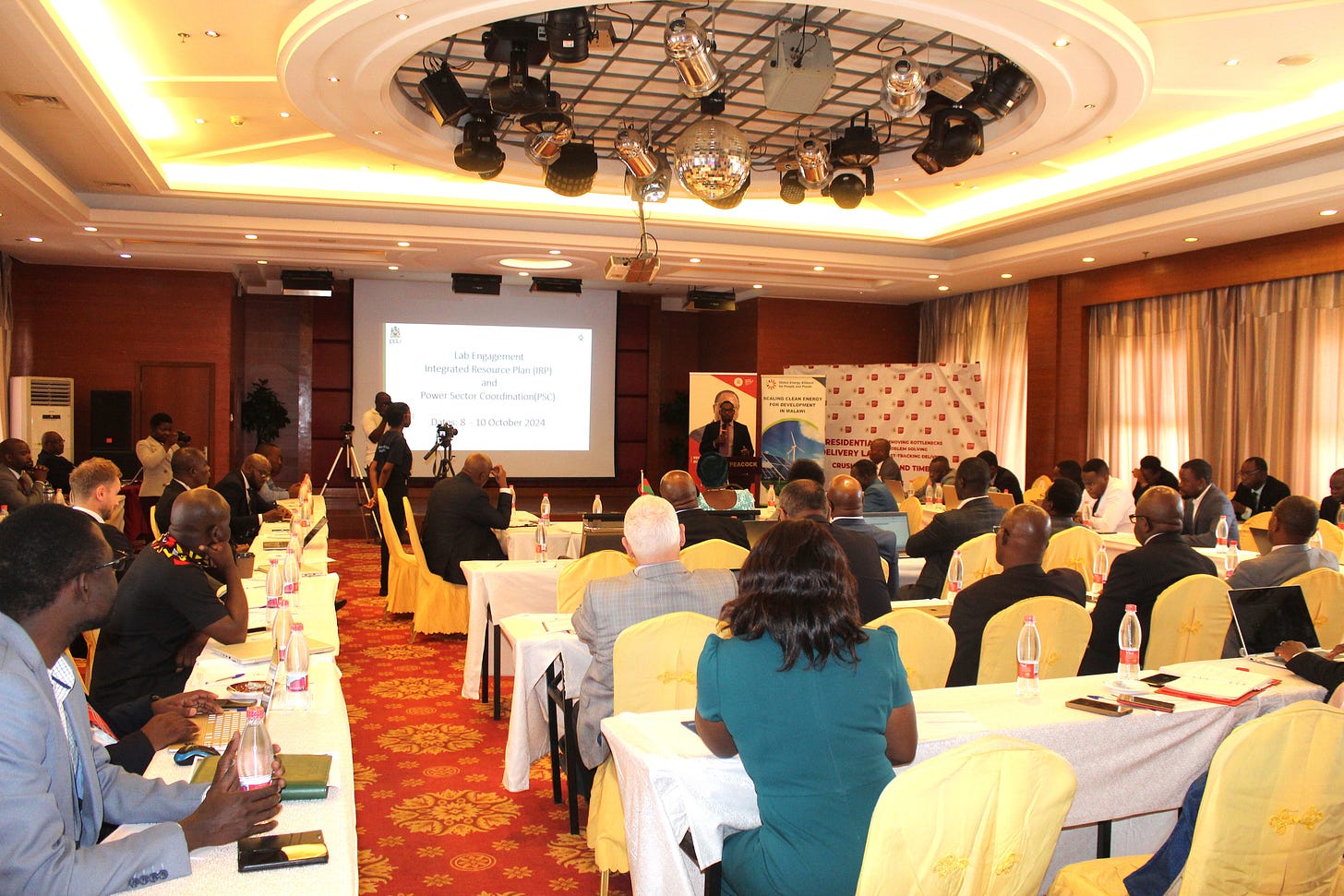Malawi Officials Open Energy Lab, Push for Power Generation Goals
The lab sessions aim to address these challenges and improve power sector coordination.
LILONGWE, Malawi— Malawi's Minister of Mining Monica Chang'anamuno and Deputy Secretary to the President and Cabinet Dr. Janet Banda launched the Presidential Delivery Unit Lab Program on Energy Tuesday, emphasizing the government's commitment to ambitious power generation targets and addressing critical issues in the sector, writes Winston Mwale.
Chang'anamuno, speaking on behalf of the Minister for Energy, highlighted President Lazarus Chakwera's vision "to generate 1,000 megawatts (MW) of power by 2025 and attain universal access to electricity by 2030."
The minister acknowledged progress but noted current levels fall short of goals.
"Our current generation capacity of around 556 MW is far short of the target we planned to achieve by now," she said.
Chang'anamuno called for swift action to overcome barriers to energy sector development.
"We need to expedite the completion of key frameworks, including the IPP framework, and streamline our processes to ensure that investors and developers are not let down by bureaucracy," she stated.
Dr. Banda, who heads the Presidential Delivery Unit, outlined the lab's objectives, saying, "Today, we embark on the process of addressing critical issues that impede on effective progress in the energy sector as identified by you stakeholders."
She highlighted challenges including "uncertainties around the implementation of tariffs, the application of the Automatic Tariff Adjustment Formula, impact of the country's forex situation, delays in setting up of the rural electrification agency, procurement challenges, delays in finalizing independent power producers (IPP) framework and the absence of a concrete resource mobilization plan to finance the IRP."
The lab sessions aim to address these challenges and improve power sector coordination.
Chang'anamuno urged participants to tackle "regulatory and policy barriers, stakeholder engagement barriers and financial constraints."
Both officials stressed the importance of the energy sector in achieving national development goals.
Chang'anamuno stated, "Without a robust energy sector, we cannot build the industries that will create jobs, we cannot power the hospitals and schools that will uplift our communities, and we cannot attract the investment that will drive our economy."
Dr. Banda emphasized the need to diversify energy sources, "particularly by increasing the number of Independent Power Producers (IPPs) off the grid and expanding our investment in renewable energy, which will help us reduce our overreliance on hydro-generated power from the Shire River."
The three-day event was organized by the Presidential Delivery Unit with support from partners, including the Global Energy Alliance for People and Planet (GEAPP).
Attendees included government officials, energy sector experts, and representatives from various stakeholder groups.
Chang'anamuno concluded by calling for collaboration among stakeholders to drive meaningful change in Malawi's energy systems, stating, "Together, we can identify innovative solutions and strategies to overcome these barriers and enhance the effectiveness of our IRP."




